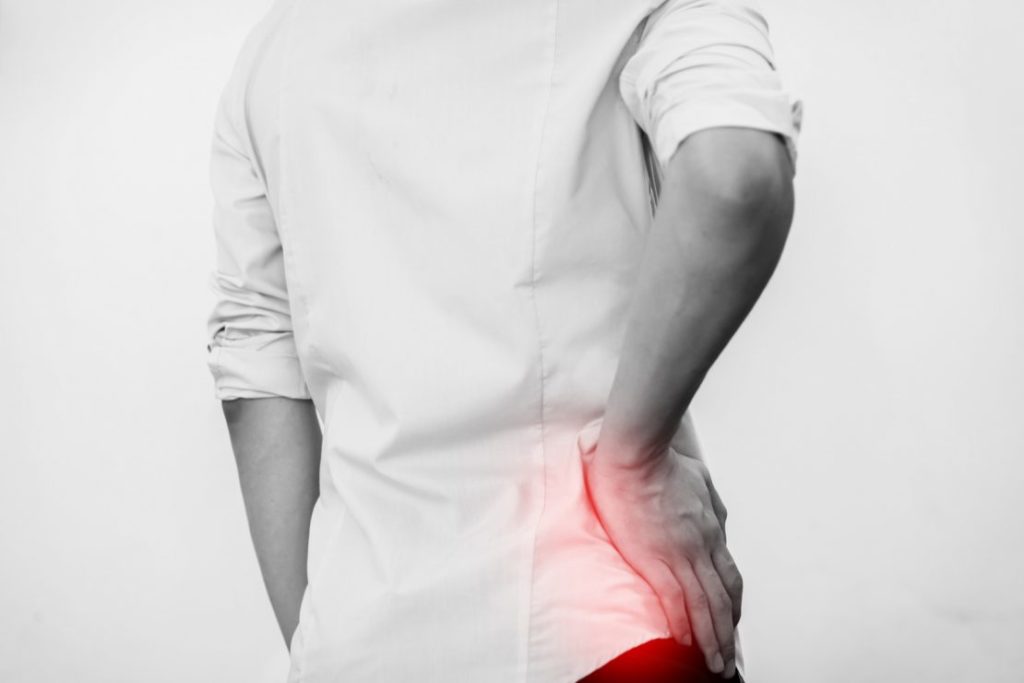Walking, standing, sitting and other small physical tasks put stress on the hip joints. Since the hips are the largest joints in the human body, there is cushioning and support from the cartilage and muscles that surround it. The hips perform repetitive motions every day and even more so if the patient is an athlete. Even though the hips are accustomed to normal wear and tear, chronic hip pain may begin to develop. Patients can perform the same motions every day, but one too many times may lead to frustrating chronic hip pain symptoms.
What causes chronic hip pain?
On their own, patients may not be able to exactly identify their chronic hip pain problem or what is causing the painful hip condition. Chronic hip pain is mostly due to the overuse of this major joint. Chronic joint pain in the hip can be extremely painful for patients since this joint is so large. Normal wear and tear that goes too long without treatment end up becoming a whole other problem with its own symptoms and diagnosis.
Some chronic hip pain causes include:
- Arthritis– Cartilage around the hip joint begins to deteriorate so arthritis hip pain comes from bones rubbing together in the hip.
- Osteonecrosis– A lack of blood supply that leads to the collapse of the hip joint with great pain.
- Osteoporosis– A decrease in bone density and bone mass leaves the hip more vulnerable to fractures and dislocations.
- Snapping Hip– Popping and snapping coming from the hip joint while walking or bending the hip.
- Tendonitis– Inflammation of the tendons in the hip with chronic pain problems.
How do I know if I have chronic hip pain?
Patients can feel chronic hip pain sensations around the lower back, buttocks, and thighs. Chronic hip pain is an uncomfortable problem facing many patients. Even though chronic hip pain is diagnosed more often in older patients this condition varies based on some patient characteristics. Patients are more likely to suffer from hip pain symptoms depending on their:
- Age
- Body Weight
- Medical History
- Occupation
- Physical Activity
What are chronic hip pain symptoms?
Chronic hip pain symptoms truly depend on the hip pain condition and cause. The chronic hip pain symptoms that patient experiences can help diagnose the problem and find the proper treatment options. Identifying your hip pain symptoms can include much detail and feelings like:
- Chronic pain anywhere around the hip, thigh, groin or buttocks
- Developing a limp when walking
- Limited range of motion in the hip
- Pain spreading to the lower back or legs
- Popping or snapping sounds from the hips
- Skin covering the hip joint turns red and warm
- Stiffness and tightness in the hip joint or muscles
- Swelling around the hip area
How do I prevent chronic hip pain?
Prevention is the best way to care for the hips before hip pain grows and develops within these joints. Overuse and age are the two main factors that lead to serious hip pain problems. Age cannot be controlled, but overuse of the hips can be prevented. Simple pain prevention and care for the hip joints include practices such as:
- Always stretching the hip joints before physical activity
- Eating a healthy diet with vitamins and minerals
- Keeping the body at a comfortable weight
- Know your limits when exercising and working out
- Wear the right type of shoes with proper support
What can I do at home for chronic hip pain?
Suffering from chronic hip pain is not easy for any patient. Especially patients with weaker bones and muscles, chronic hip pain remains persistent without care and treatment. At-home treatments can minimize a patient’s level of hip pain symptoms and prevent the condition from growing. If hip pain has gone to a point where it can no longer be prevented, patients are recommended to try these at-home treatment methods:
- Allow the body time to rest after physical activity
- Apply heat to the hip suffering from chronic pain
- Avoid stairs or putting extra stress on the hips
- Keep the hip elevated while lying in bed
- Use an ice pack to calm hip pain symptoms


